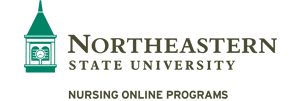This article was last updated on March 06, 2019.
The techniques, procedures and policies in healthcare continue to evolve and nurses have to keep up with the changes. Nursing students in RN to BSN degree programs are prepared for integrating evidence-based research into their practice to improve patient outcomes. The combination of evidence-based practice and the advent of technology is ushering in a new era in patient care.
When Did Evidence-Based Practice Begin?
The origin of evidence-based practice can be traced to Florence Nightingale. Through observation, Nightingale concluded that sanitary conditions affected a patient’s health and outcome. Nightingale wrote about the importance of statistics in her book Notes on Nursing. She believed that patient morbidity and mortality could only be predicted when you compared the number of deaths from other hospitals that included pertinent information such as age, sex and the patient’s affliction.
Professor Archibald Cochrane is considered to be the father of evidenced-based medicine. His book Effectiveness and Efficiency: Random Reflections on Health Services was published in 1972. At the time, physicians made decisions about patient care based on their own assessments and choice. Cochrane felt this practice led to unfounded assumptions that could adversly impact patients. Instead, Cochrane advocated for randomized controlled trials (RCT) and other types of research to be used in patient care.
In the 1996 BMJ article Evidence based medicine: what it is and what it isn’t, Dr. David Sackett and colleagues stated, “evidence-based medicine is the conscientious, explicit, and judicious use of current best evidence in making decisions about the care of individual patients. The practice of evidence based medicine means integrating individual clinical expertise with the best available external clinical evidence from systematic research.”
How Does Evidence-Based Practice Help Patients?
Evidence-based practice in nursing is a patient-centered, holistic approach to patient care. The reason for the application of evidence-based research is to supplement the knowledge and expertise of nurses as well as to improve patient safety, reduce healthcare costs, support decision-making for individualized patient care and generate additional data. Thus, nurses utilize research to close the gap between theory and clinical practice. This method can decrease the errors, injuries and negative patient outcomes.
How Is Evidence-Based Practice Applied in Nursing?
When implementing research into their practice, nurses should determine a clinical decision by following a problem-solving approach to patient care. The steps involved in evidence-based practice include the following:
- Ask a clinical question.
- Gather the latest and most relevant research to answer the question.
- Analyze the evidence.
- Incorporate personal clinical experience, patient’s situation, available resources, and patient’s preferences and values.
- Evaluate the results.
- Apply the evidence to the delivery of patient care.
What Is the Role of Technology in Evidence-Based Practice?
The healthcare industry has embraced technology. With handheld devices like tablets and smartphones, nurses can communicate with team members and other healthcare professionals without leaving the patient. Research and reference materials also are readily accessible.
Nurses use electronic health record (EHR) systems to document a patient’s medical history. EHR is becoming a valuable tool not only for its intended purpose but also as a source of significant practice evidence that can aid in deciding the best course of action for patient care. The data from EHR can be used to create case studies by collecting the following:
- Medical diagnoses based on signs and symptoms
- Patient health requirements
- Medication information
- Treatment histories
How Do Medical Applications (Apps) Benefit Nurses?
Medical apps serve as research tools. They help nurses with problem-solving and decision-making. The apps can range from medication guides to prognosis screenings. Here are some examples of evidence-based apps:
| App | Description |
|---|---|
| DynaMed Plus Mobile App | Find clinical information to answer clinical questions |
| Aspirin Guide | Provides assistance with determining risk factors for patients |
| Gout Diagnosis | Evidence-based algorithm aids in the diagnosis of gout |
| The Medical Letter | This newsletter is an evidence-based resource on drug therapy |
| ePrognosis Cancer Screening | Determines a patient’s prognosis using validated questions for breast/colon cancer screening |
Nurses have a responsibility to provide optimal patient care. While a BSN program prepares nurses to practice, they still need to stay current on changes in medicine and innovative methods for the delivery of care. That is why it is imperative for nurses to conduct research when caring for patients. By employing evidence-based research into their practice, nurses can pinpoint the best options for patients and increase their chances for recovery and survival.
Learn more about Northeastern State University’s online RN to BSN program.
Sources:
Nursing Management: Developing Evidence-Based Tools from EHR Data
International Council of Nurses: Closing the Gap: From Evidence to Action
The Nest: What Are the Benefits of Evidence-Based Practice in Nursing?
Medical Practice Insider: Top 4 Ways an EHR Can Drive Evidence-Based Practice
ScienceDirect: The History of Evidence-Based Practice in Nursing Education and Practice
NCBI: A Systematic Review of Healthcare Applications for Smartphones
EBSCO Nursing Resources: Provides Mobile Access


